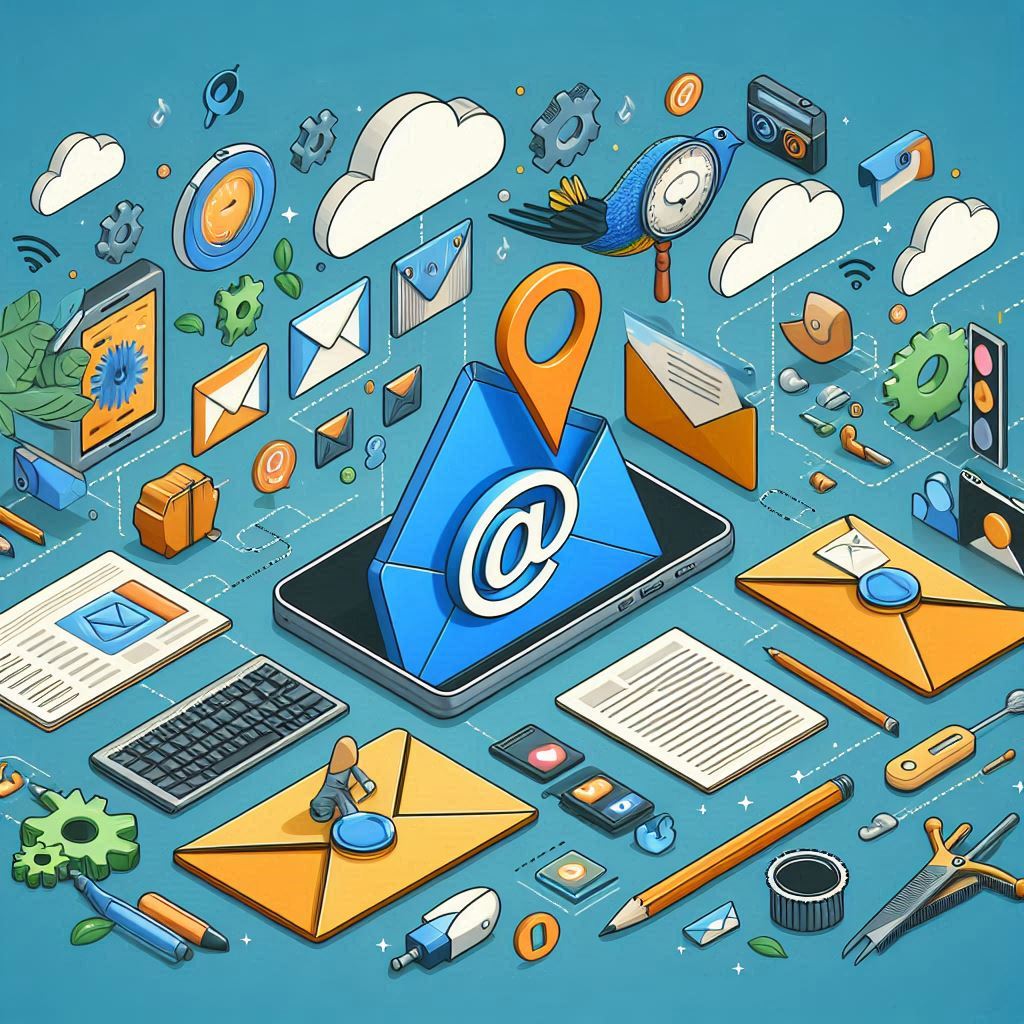
How Can an Anonymous Email Protect you From Phishing
Using an anonymous email can be a crucial step in protecting yourself from phishing attacks. Phishing is a type of cyber-attack where fraudsters masquerade as a trustworthy entity in order to trick individuals into providing sensitive information such as usernames, passwords, and credit card details. By utilizing an anonymous email, you can add an extra layer of email security and reduce the risk of falling victim to these types of scams.
Main Points
- Phishing attacks can lead to identity theft and financial loss
- Anonymous email services can prevent fraudsters from obtaining your personal information
- Using a fake email address can help you avoid spam and unwanted marketing emails
- It is important to choose a reputable anonymous email provider for maximum security
Understanding the Risks of Phishing Attacks
Phishing attacks are a serious threat to individuals and organizations alike. Understanding the risks associated with phishing is crucial in order to protect sensitive information and data. By becoming familiar with common tactics such as false or anonymous emails, as well as the importance of email security, individuals can better recognize and combat phishing attempts. Fake emails and other malicious techniques are used to deceive unsuspecting individuals, making it essential to prioritize awareness and vigilance.
Key Takeaways:
False emails, anonymous email, and email security are crucial factors in combating phishing attacks. It is important to stay informed and vigilant in order to protect against potential threats.
The Importance of Email Security in Today's Digital Landscape
In today's digital world, email has become a crucial means of communication for individuals and businesses alike. With the increasing reliance on email, the importance of email security cannot be overstated. Cyber threats such as phishing attacks, malware, and unauthorized access pose significant risks to sensitive information transmitted via email. It is paramount for individuals and organizations to prioritize email security to safeguard their data and prevent potential security breaches.
The Risks of Inadequate Email Security
Without robust email security measures in place, individuals and businesses are vulnerable to a myriad of cyber threats. Phishing attacks, for instance, can trick recipients into divulging sensitive information, leading to identity theft or financial loss. Malware embedded in email attachments can compromise systems and lead to data loss or system downtime. Unauthorized access to email accounts can result in unauthorized activity and the unauthorized disclosure of confidential information.
The Benefits of Prioritizing Email Security
By prioritizing email security, individuals and organizations can mitigate the risks associated with cyber threats. Implementing encryption and multi-factor authentication can prevent unauthorized access to email accounts and ensure the privacy of sensitive information. Regular security updates and employee training can enhance awareness of potential threats and minimize the likelihood of falling victim to malicious email activities. Additionally, email security measures can bolster trust and credibility with clients and partners, fostering a secure and reliable digital environment.
| Key Point | Description |
|---|---|
| Phishing Attacks | Trick recipients into divulging sensitive information |
| Malware Threats | Compromise systems and lead to data loss or system downtime |
| Unauthorized Access | Result in unauthorized activity and the unauthorized disclosure of confidential information |
How Anonymous Email Services Work to Protect Your Identity
When you send an email using a regular email service, your personal information such as your IP address and location can be easily traced back to you. However, with anonymous email services, your identity is protected through encryption and the use of proxy servers. These services allow you to create an email account without providing any personal information, ensuring that your anonymity is preserved. This added layer of security can be crucial for individuals who value their privacy and want to prevent their personal data from being exposed.
Key Features of Anonymous Email Services
1. Encryption: Anonymous email services use advanced encryption algorithms to secure your communications and prevent unauthorized access to your emails.
2. Proxy Servers: These services route your emails through proxy servers, masking your IP address and making it difficult for anyone to track your online activity.
3. No Personal Information Required: Unlike regular email services, anonymous email providers do not require you to provide any personal information when creating an account, giving you the assurance that your identity will remain private.
Identifying Red Flags: Signs of a Potential Phishing Email
Phishing emails are a common method used by cybercriminals to trick individuals into revealing sensitive information such as passwords, credit card numbers, and personal data. It is important to be able to identify the red flags that may indicate an email is a potential phishing attempt. Some common signs to look out for include:
1. Suspicious Sender
Avoid emails from unknown or suspicious senders. Check the email address for any discrepancies or irregularities, such as spelling errors or unfamiliar domains.
2. Urgent or Threatening Language
Phishing emails often use fear tactics to prompt a quick response. Be cautious of emails that contain urgent or threatening language, and request immediate action or disclose personal information.
3. Suspicious URLs or Attachments
Hover over links to check the actual destination before clicking. Be wary of unexpected attachments, especially those prompting you to enable macros or download software.
Best Practices for Using Anonymous Email Safely and Effectively
When it comes to using fake email, it's important to follow best practices to ensure safety and effectiveness. One key practice is to choose a secure and trustworthy anonymous email provider. Additionally, it's crucial to avoid sharing personal information and to use strong and unique passwords for your account. Furthermore, regularly updating and monitoring your account for any suspicious activity is essential for maintaining security. By following these best practices, you can safely and effectively utilize anonymous email for your needs.
The Role of Two-Factor Authentication in Mitigating Phishing Risks
Phishing attacks have become a major concern for individuals and businesses alike, with cybercriminals becoming increasingly sophisticated in their tactics. One of the most effective ways to combat phishing is through the implementation of two-factor authentication (2FA).
Two-factor authentication adds an extra layer of security by requiring users to provide two forms of identification before gaining access to an account. This typically includes something the user knows, such as a password, and something the user has, such as a fingerprint or a code sent to their mobile device.
By requiring attackers to have both pieces of information, two-factor authentication significantly reduces the risk of unauthorized access, even if a password has been compromised through phishing. In fact, a study by Google found that the use of 2FA can block 100% of automated bot attacks, 96% of bulk phishing attacks, and 76% of targeted attacks.
Furthermore, the use of two-factor authentication can also help to build trust with customers, as it demonstrates a commitment to security and protecting their sensitive information. This can be especially important for businesses that handle financial transactions or store personal data.
In conclusion, the implementation of two-factor authentication is crucial in mitigating the risks associated with phishing attacks. By requiring multiple forms of identification, 2FA adds an extra layer of security that can greatly reduce the likelihood of unauthorized access.
Frequently Asked Questions
How does using an anonymous email protect you from phishing?
An anonymous email can protect you from phishing by concealing your real email address, making it harder for phishers to target you specifically. It adds an extra layer of privacy and security to your online communications.
Is an anonymous email completely secure from phishing attacks?
While using an fake email can significantly reduce the risk of falling victim to phishing attacks, it does not guarantee complete security. It is important to remain vigilant and practice good email security habits.
Can I use an anonymous email for all online activities?
Yes, you can use an anonymous email for most online activities. However, some websites and services may have restrictions or require a verified email address for certain features or functionality.
Are there any drawbacks to using an anonymous email?
One drawback of using an fake email is that it may be more difficult for legitimate contacts to reach you, as they will not have your real email address. Additionally, some anonymous email providers may have limitations on storage or features.
How can I set up an anonymous email account?
Setting up an fake email account typically involves using a reputable anonymous email service provider and following their instructions for creating an account without revealing personal information. It is important to choose a provider with a strong privacy policy and security measures in place.
 App Store
App Store Google Play
Google Play

